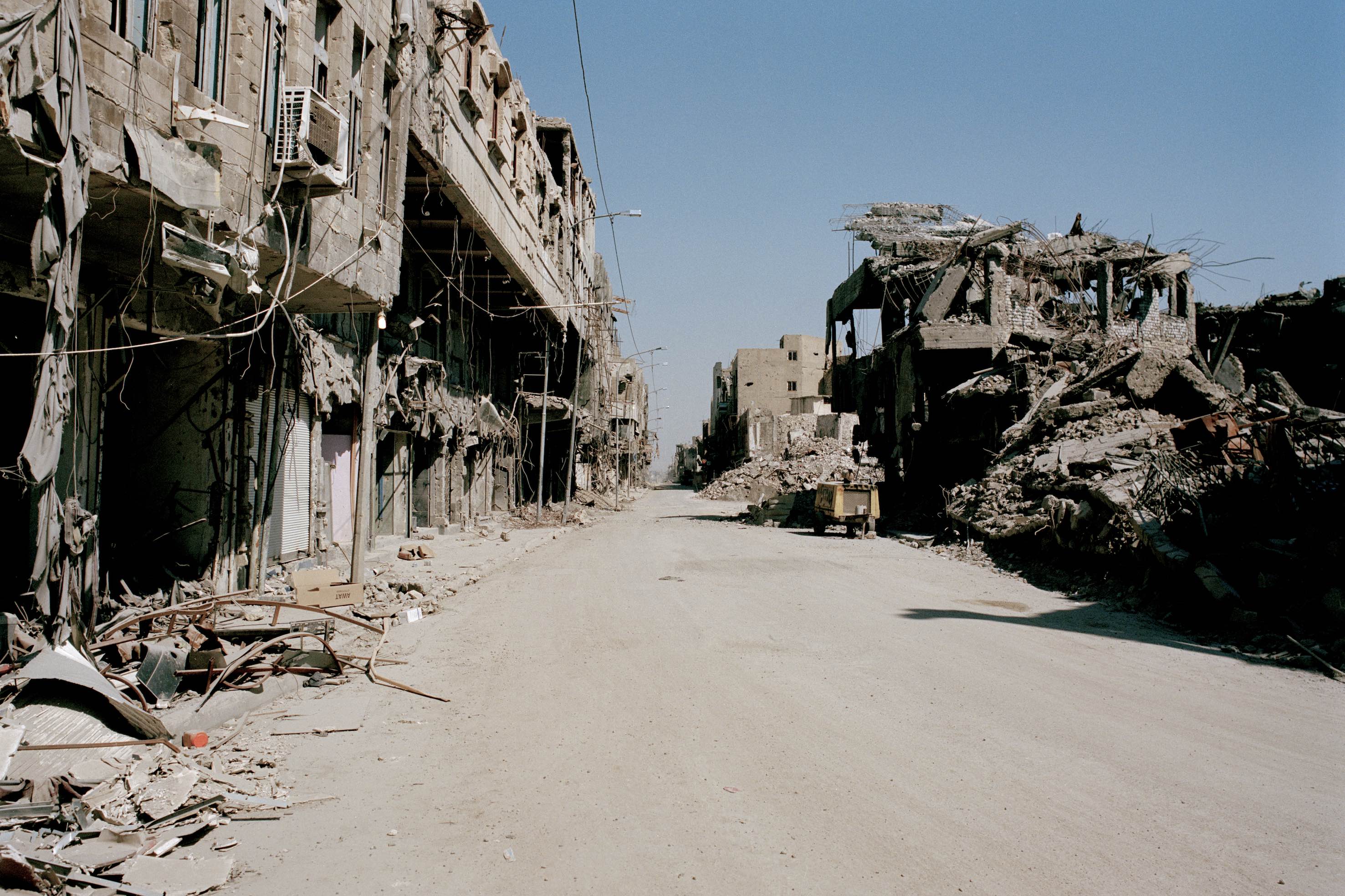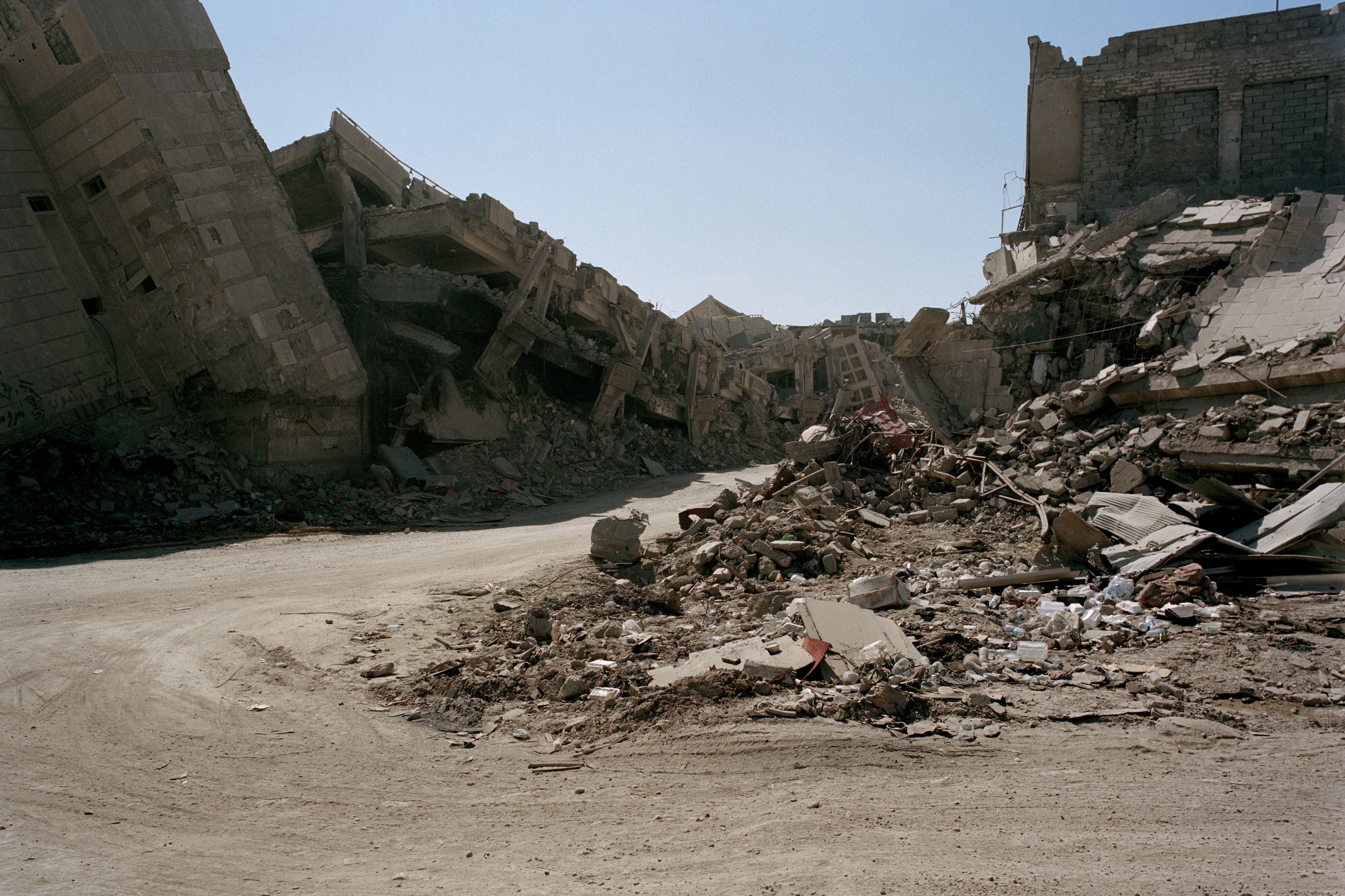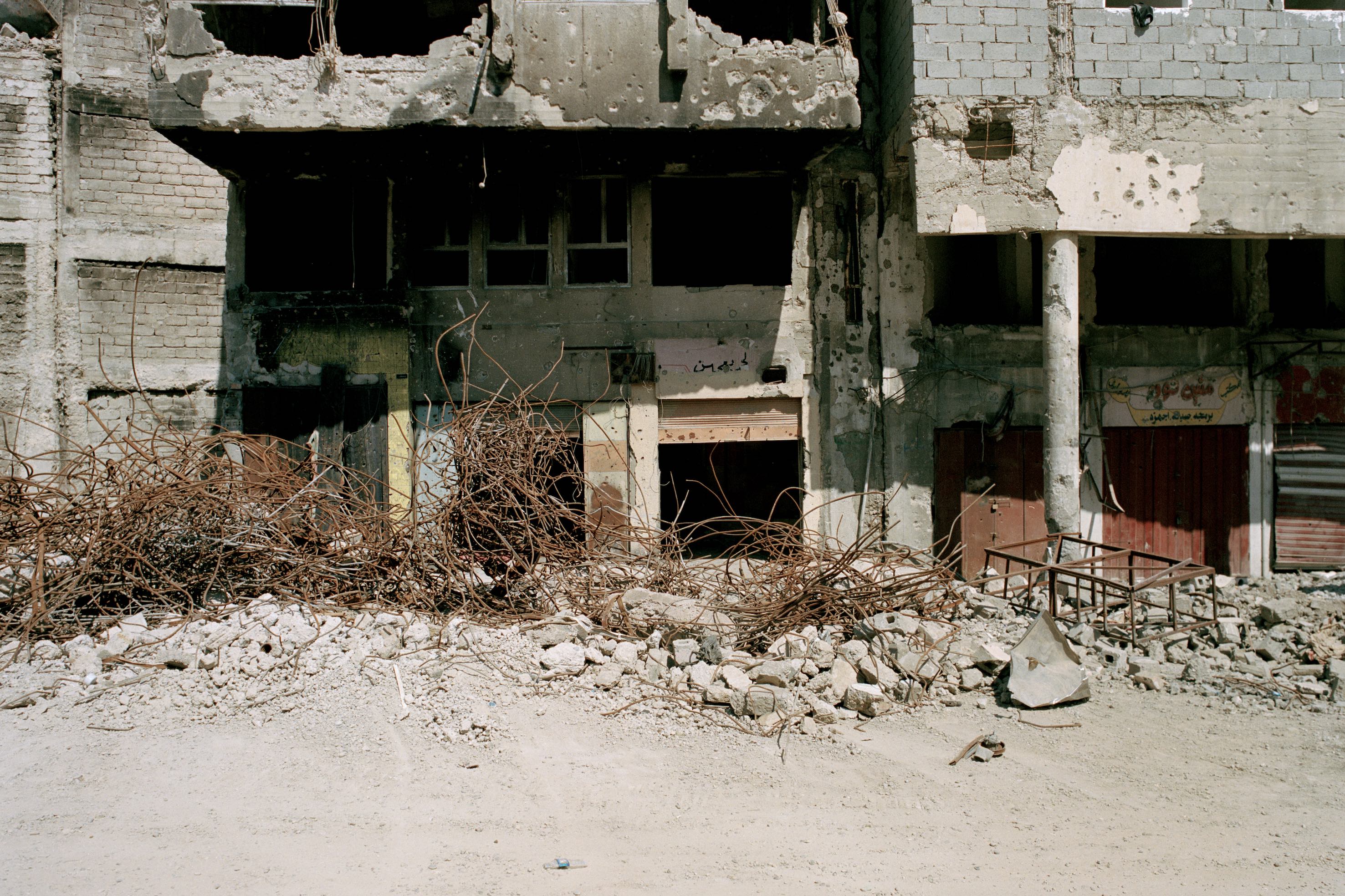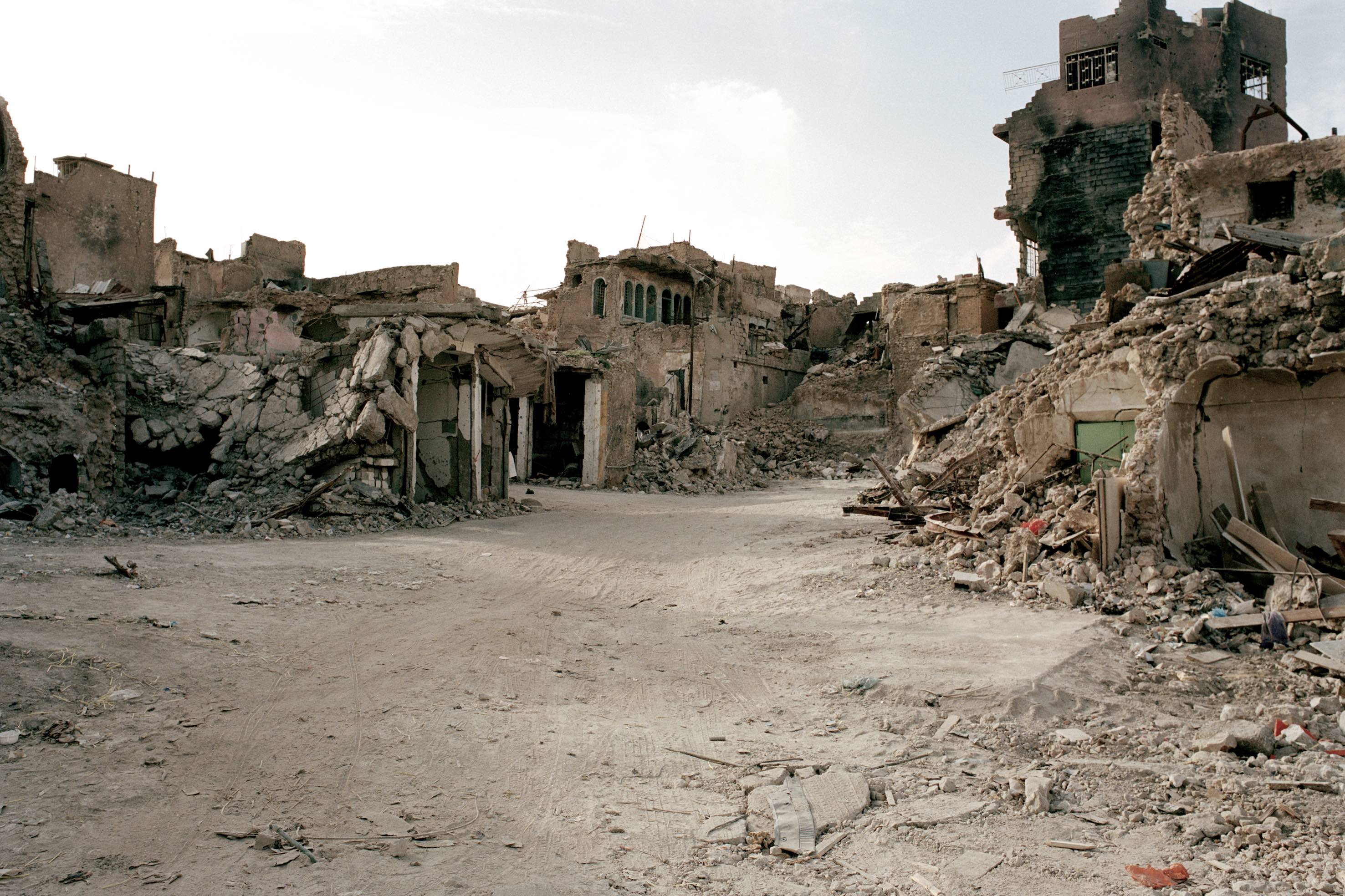A haunting portrait of life in post-war Mosul
- Text by Giles Duley
- Photography by Giles Duley

This year I’ve been working on a photography project with Save the Children, looking at the lives of children in three conflict zones. We tend to look at wars as individual events – I’m interested in looking at the themes across them.
For children, war is particularly damaging. As well as physical injuries, loss of homes, and becoming refugees, children miss out on education, and the trauma can have a long-lasting psychological impact.
The first two stories we documented were of children living in the contact zone in Ukraine and in the South Sudanese refugee camp in Uganda. For the final story, we wanted to focus on a family living in Mosul.


I had first visited Mosul in spring 2017, where I’d been covering the military campaign to retake the city from ISIS. Based in a hospital in Erbil, I witnessed the very real and personal horrors of what was happening. In over a decade of covering the impact of conflict, I’d never seen anything on the same scale.
On a personal level, it was a difficult time. I struggled to reconcile the seeming futility of photography against such an onslaught on humanity. Both sides were engaged in a total war for the city, and civilians were paying the price. I’ve never seen so many injured children, complex injuries (multiple limb loss) or decimated families.
In the end, it was the words of a mother that reminded me of my purpose. Referring to her son who had lost both of his legs, she’d said; “when a child is injured like this, the whole world should see.” And so, for the following weeks, I did the best that I could to act as a witness for what was happening.


When I returned with Save the Children this year, I did so with a certain trepidation. And rightly so – in the time I was there, I met families and children who had suffered unimaginably under both ISIS control of the city and during the months of fighting to retake it. However, with the fighting over, this trip also gave me the opportunity to step back from the very intimate and personal, where my work normally focuses; and instead to look at the scars of the city itself.
That’s where this series of cityscapes comes from. More than anything else, I simply wanted these photos to act as a witness. But I also believe in current times we all have to do more. More specifically, I hope these images support Save the Children’s work in advocating for the protection of children in conflict.


The Save the Children team is young – mainly from Mosul and the majority women. To listen to them telling me stories; I saw their passion, fight and desire to rebuild their own city. They had all suffered under ISIS rule, especially the women, but they were unbowed and in their resilience and hope I saw the future of this city.
One in six children are living in areas directly affected by conflict and we need to do more to pressure our politicians and leaders to make sure perpetrators are held to account for crimes against children. Too often crimes against children have gone unpunished, this needs to change.
The charity has just released a report highlighting the devastating impact of the conflict in Mosul on children’s mental health. These children must be given the right support to help rebuild their lives.


Find out more about Save the Children’s work in protecting children in conflict.
Follow Giles Duley on Twitter and Instagram.
Enjoyed this article? Like Huck on Facebook or follow us on Twitter.
You might like

“Humanity’s big threat is our disconnect from nature”: Craig Richards and Chris Levine in conversation
Lighting up — With Houghton Festival collaborating with artist Chris Levine in its most recent edition, we sat down with the light artist and the festival’s creative director Craig Richards to chat about their new installations, and the role of art and music in tumultuous times.
Written by: Isaac Muk

Three heart wrenching poems from Gaza
Writings that narrate — With Gaza’s population facing starvation, we are handing over our website to Yahya Alhamarna, a displaced poet and student in Gaza, who shares some of his recent poetry, and explains why writing is so important to him.
Written by: Yahya Alhamarna

Throwback portraits of the UK’s first punks
Punks 1978-1980 — While working as a photographer in the army, Wayne “Spike” Large would moonlight as a punk on the weekends. His new photobook revisits the characters that he captured from the genre’s heyday.
Written by: Miss Rosen

Meet Lady Pink, the ‘First Lady’ of graffiti
Miss Subway NYC — As a leading writer and artist in a man’s world, Sandra Fabara has long been a trailblazer for girls in underground art. Now, her new show touches on her legacy, while looking to the future.
Written by: Isaac Muk

Will internet age verification actually work?
VPN Summer — With the Online Safety Act coming into force over the weekend, the UK woke up to find pornography, but also any content deemed “harmful” hidden behind an ID wall. But young people are far too tech savvy to be deterred, explains newsletter columnist Emma Garland, who also warns of the dangers of mass data harvesting.
Written by: Emma Garland

Love and rage at the record shattering London Trans+ Pride 2025
Dismantle the cis-tem — With over 100,000 attendees, the Saturday march was the largest trans pride event ever in world history. Cheer Up Luv’s Eliza Hatch captured the action, and recounts its powerful energy.
Written by: Eliza Hatch / @cheerupluv

